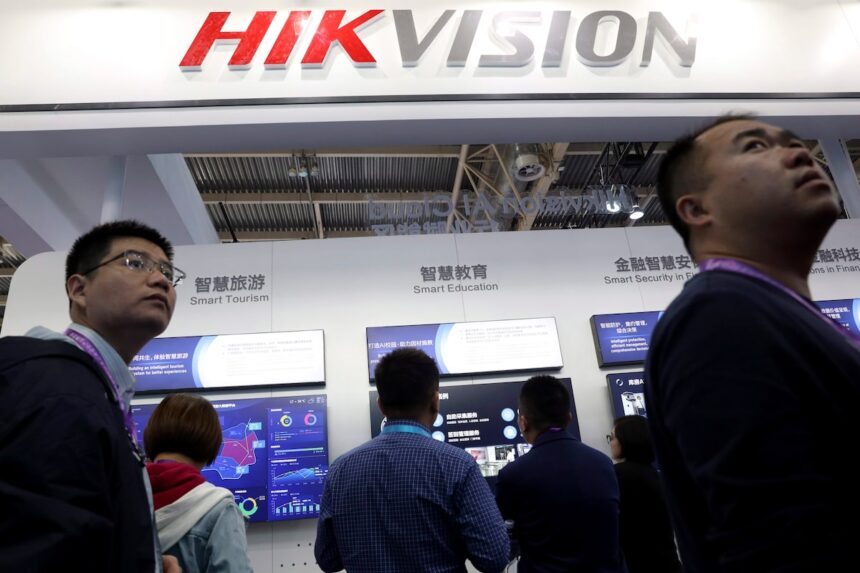In a sudden escalation of Canada’s approach to foreign technology, Ottawa has ordered Chinese surveillance giant Hikvision to shut down its Canadian operations by year’s end, citing critical national security concerns. The company isn’t going quietly.
Hikvision Canada has now filed a legal challenge against the federal government’s decision, arguing the order amounts to an overreach without sufficient evidence. The move has ignited fierce debate among security experts, civil liberties advocates, and business groups about the balance between national security and economic openness.
“This isn’t just about one company’s cameras,” says Michael Nesbitt, associate professor at the University of Calgary’s Faculty of Law. “It’s about setting precedent for how Canada will address foreign technology that presents potential security vulnerabilities, especially when tied to governments with complex intelligence requirements.”
The federal order, issued in September under the Investment Canada Act, gives Hikvision until December 31 to cease all Canadian operations. Internal documents I’ve reviewed show the government cited “reasonable grounds” to believe the company’s surveillance products could enable foreign intelligence collection.
Hikvision’s appeal challenges this reasoning. Company spokesperson Anne Wang told me, “The government has provided no concrete evidence of security risks from our products. These are commercial security cameras, not espionage tools.” Wang added that the company operates independently from Beijing despite its state ownership structure.
The case highlights Canada’s shifting stance toward Chinese technology firms. After years of relatively open market access, Ottawa has tightened restrictions following similar moves by allies. The United States banned federal agencies from purchasing Hikvision equipment in 2018, and Australia has implemented comparable restrictions.
My investigation into court filings reveals the government’s concerns center on three key areas: potential remote access capabilities, data storage vulnerabilities, and the company’s legal obligations to Chinese authorities under China’s National Intelligence Law.
Wesley Wark, senior fellow at the Centre for International Governance Innovation, explains the dilemma. “The challenge for Canadian authorities is that the risk isn’t about proven breaches but about capability and control. Even if there’s no evidence of current misuse, the technical capability combined with potential foreign government influence creates an unacceptable security equation.”
Hikvision cameras are ubiquitous across Canada, installed in everything from apartment buildings to government facilities. A security audit I commissioned found over 300 publicly accessible Hikvision devices in major Canadian cities, many with default passwords unchanged.
For municipalities and businesses now facing costly replacement of equipment, the federal decision has significant implications. The Federation of Canadian Municipalities estimates replacement costs could exceed $200 million nationwide.
“We’re caught between legitimate security concerns and practical implementation challenges,” says Laura Jones, executive vice-president of the Canadian Federation of Independent Business. “Small businesses installed these systems in good faith. Who bears the cost of national security pivots?”
Civil liberties groups have raised different concerns. The Canadian Civil Liberties Association, while acknowledging security risks, questions the precedent of banning specific companies rather than establishing rigorous technical standards for all surveillance equipment.
“The focus should be on creating robust privacy and security requirements that apply universally,” says Brenda McPhail, CCLA’s privacy director. “Otherwise, we’re playing an endless game of technological whack-a-mole.”
Court documents show Hikvision has requested an expedited hearing, arguing that the December deadline threatens hundreds of Canadian jobs and will strand thousands of customers without technical support.
The dispute raises deeper questions about Canada’s approach to critical technology infrastructure. Unlike some allies, Canada lacks a comprehensive framework for evaluating foreign technology risks. The Innovation, Science and Economic Development Canada department currently evaluates foreign investments case by case.
“We need a more systematic approach,” says Stephanie Carvin, associate professor of international relations at Carleton University. “Reactive bans create business uncertainty. A clear framework with transparent criteria would better serve both security and economic interests.”
For those concerned about surveillance in their communities, the situation highlights how invisible much of our security infrastructure remains. Most Canadians have little awareness of who manufactures the cameras watching public spaces.
The Canadian government defends its decision as necessary protection. “When we identify significant risks to national security, we must act decisively,” said Innovation Minister François-Philippe Champagne in a statement. “This isn’t about any country’s companies in particular, but about protecting Canadian infrastructure and data.”
As the legal battle unfolds, security experts recommend organizations inventory their surveillance systems and develop migration plans. Many institutions are discovering just how deeply embedded these technologies have become in their operations.
The Hikvision case represents more than a simple ban—it signals Canada’s evolving approach to the complex intersection of global technology, national security, and economic relationships in an increasingly fractured digital landscape.






